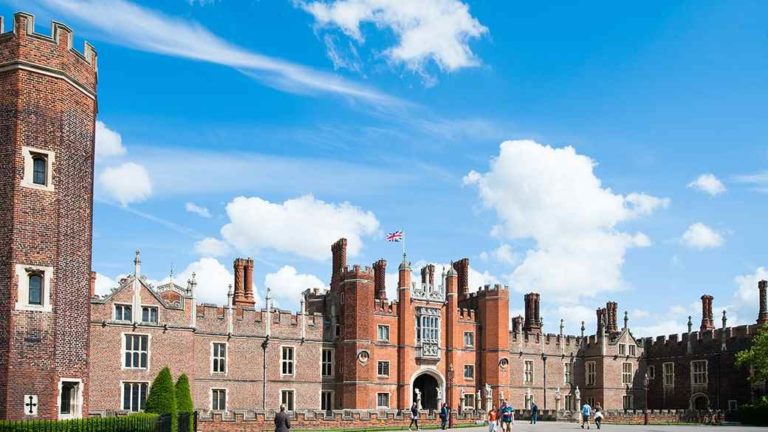How to prepare your child for a move from State to Independent School
In this blog, Alexandra outlines the necessary steps in preparing your child for a move from a state school to an independent school. Whilst this can be a daunting process, there are also many exciting opportunities that shouldn't be forgotten!
Many parents fear that their children are not reaching their full potential in state schools, and constantly question: “Should I send my child to a private school?” There are the clear benefits of: smaller class sizes, better resources and increased opportunities, but also some misconceptions, such as having better teachers in the private system.
Is there a natural transition point?
Having moved from a state to an independent school myself, I can understand it may seem a daunting prospect for both you and your child. However, be assured that it is a natural and favourable step for most families, especially when this transition is done at a “normal” point in their school life. Moving into a new school for the start of year 3 is a usual point for children to make this step, along with year 7 and year 9, ready for the GCSE years.
Will fitting in be a problem?
Whilst I experienced life in both a state and private school, I would say that both types of schools will always have a wide range of children from different backgrounds and social classes. Many private schools offer bursaries and scholarships to families who find the fees a financial struggle, and children, especially in the primary years, are incredibly accepting of people from all walks of life.
What’s the first step in applying?
The initial part of the transition process will be to find the schools that you would like your child to apply to. It is sensible to have a few schools to apply for, including schools that are realistic and not too much of a stretch academically. Most people will have a couple of schools that seem reachable, and then go for a “backup” and a “challenge” school, so they have options once they know which schools they have been accepted into.
The entrance exams
Most private schools will require an entrance exam and possible interview as a part of the admissions process. Usually, the entrance exam will test your child’s ability to answer questions in Maths based on both their current year’s curriculum and the year above, as this is what private schools work towards. In English, there will often be a comprehension, some form of grammar test and a piece of creative writing. It is therefore important to prepare your child for the exam, working on the advanced syllabus. You may find it helpful to have a tutor for your child who can prepare them for these advanced questions, along with their exam technique. It is useful to have these sessions up to a year before you plan on moving them, so there is plenty of time for the preparation.
For most of these entrance exams, children will be required to also complete a verbal and non-verbal reasoning test. When I was preparing for my 11+ entrance, I had never heard of these reasoning tests, and therefore the help of a tutor was a huge benefit to me. Many state schools do not teach lessons in VR or NVR, so it can be advantageous to invest in a tutor who can introduce this to your child, ready for their entrance exam.
Finding a tutor
It is possible to find one tutor who specialises in school entrance exams for the whole process which can make it a smoother transition for them. The tutor often also becomes someone your child can confide in and talk about any worries they may have about changing schools. Although the exams may seem daunting, it ensures your child will end up at school suited to their own abilities, so they should never feel like they’re behind the rest of their peers.
Preparing for the transition
Once you have decided upon the school for your child, it is a good idea to have a look at the curriculum, and for secondary school, the exam boards used. This will help you, and your tutor, to effectively prepare your child for when they start. When I started at my new school, I can remember feeling apprehensive when I saw ‘Biology’ on my timetable. I had previously only had science lessons and was not sure what each of the different sciences entailed. Other children were used to this teaching and had much better knowledge than me in these subjects and I felt like I was already behind. These are aspects that a tutor can help with in preparing your child for their new school. As well as going over the academic content, they will be able to go through all elements of private school life, and touch on any changes that they might want to prepare for.
The school day
The school day in an independent school is often slightly longer than that of state. Children are often in by 8:30am and the day finishes between 3:30 and 4pm. This is so they can fit in all the extra subjects that are on offer. Your child could learn up to four languages in secondary school, and from a young age they start Latin. You may therefore find it valuable to find a tutor to touch on the basics with them, as not many state schools offer this subject. There are also extra-curricular activities in the school day such as chess, martial arts and ballet, as well as a number of after-school activities for the children to enjoy. These longer days are definitely made up for by the long school holidays!
Focus on the positives!
As well as preparing your child for things that might worry them, you should prepare them for all of the amazing and wonderful opportunities they will have at their new school, to make sure they are excited and happy about their transition. The trips that are on offer at private schools are exceptional; from playing netball tournaments in South Africa to visiting NASA in Florida, there really is nothing off the cards when it comes to residentials! The sport in private schools is also outstanding; with state-of-the-art facilities and sports matches against a number of surrounding schools, there’s nothing you can’t try! Extra opportunities such as joining the school’s cadet force (CCF) or volunteering at local charities, only adds to the plethora of experiences on your child’s CV. Small class sizes means the learning is much more tailored to each child, and 1:1 support is available at any time. If your child is behind when they join, they will be given the help to enable them to catch up quickly.
Overall, transitioning from a state to a private school may feel like a daunting process, but if the right steps are taken far enough in advance, it can be a smooth and simple route. Within a few weeks of joining their new school, it will seem to both you and your child like they have been there forever!



Hi,
I have been tutoring my son for 13+ exam by myself. Now with the exam due in 3 weeks, I am anxious on writing section of the English paper. Which few generic topics he can prepare now?
Dear Sujata
You can read a 13 Plus English syllabus here:
https://owltutors.co.uk/advice/13-plus/english/syllabus/
Best of luck!
Owl Tutors